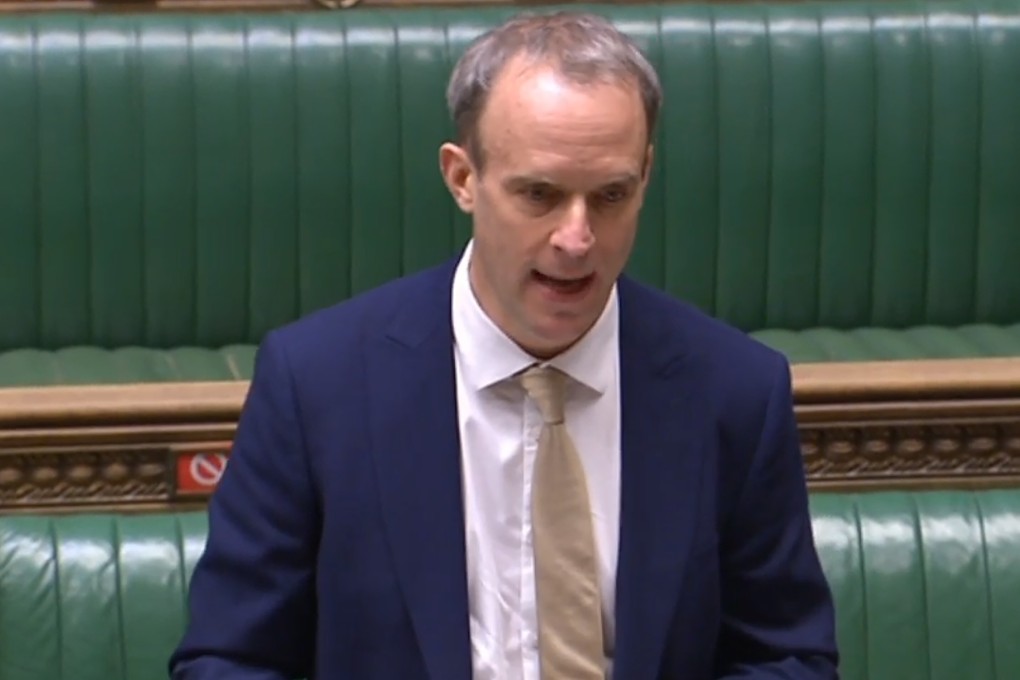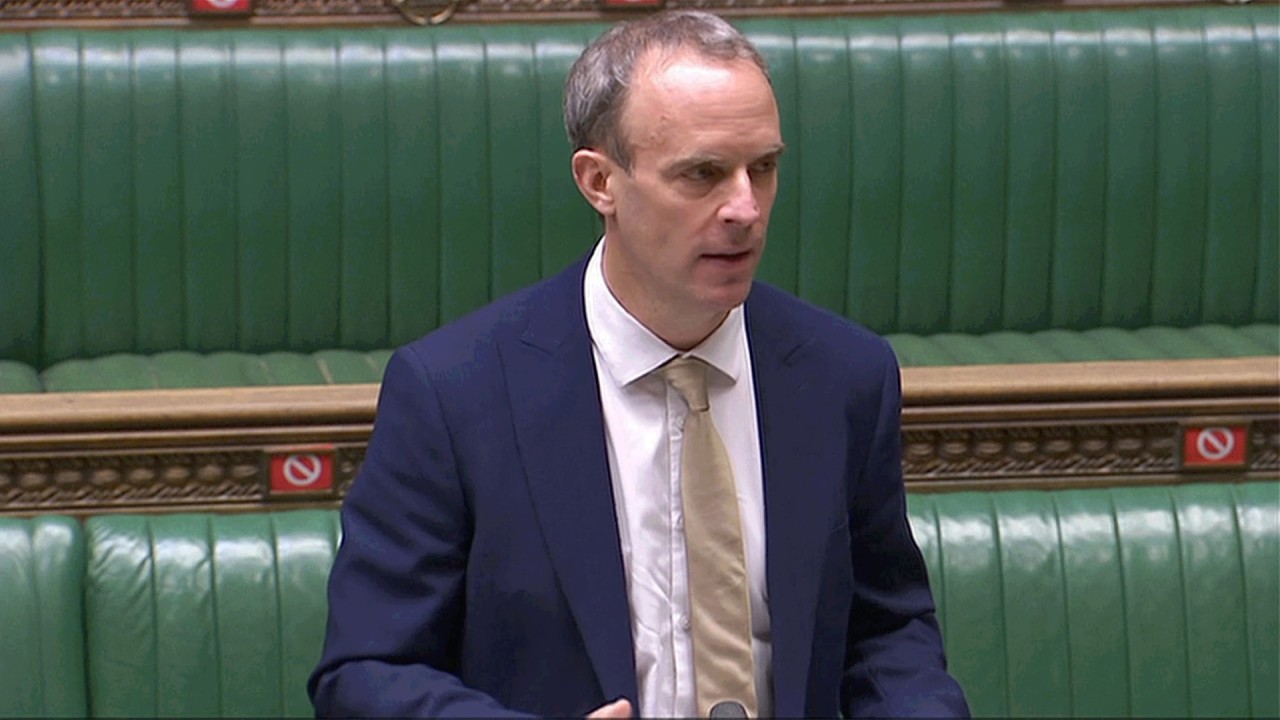Britain introduces new policies to end supply-chain links to Xinjiang
- British Foreign Secretary Dominic Raab announces moves to cut off business with suppliers where there is sufficient evidence of human rights violations
- ‘Our aim, put simply, is that no company that profits from forced labour in Xinjiang can do business in the UK,’ he says

British companies will need to switch their supply chains away from Xinjiang under a new raft of policies announced by Foreign Secretary Dominic Raab on Tuesday, as international actions grow over allegations of human rights violations by China against Uygur Muslims in the region.
Addressing parliament, Raab said that evidence existed of forced labour among Muslim Uygurs in Xinjiang; the United Nations has estimated at least 1 million Uygurs, among others, have been held in internment camps.
“I have made my concerns over Xinjiang clear directly to China‘s Foreign Minister Wang Yi,” Raab said. “China’s response is to deny, as a matter of fact, that any such human rights violations take place at all. They say it’s lies.”
“Our aim, put simply, is that no company that profits from forced labour in Xinjiang can do business in the UK, and that no UK business is involved in their supply chains,” Raab said. “Any company profiting from forced labour will be barred from public procurement in this country.”

01:33
Britain introduces new policies to end supply-chain links to Xinjiang
The government, Raab said, would provide guidance and support for all British public bodies to use public procurement rules to exclude suppliers where there is sufficient evidence of human rights violations in supply chains. This presumably applies to all companies around the world that supply the British government.
Financial penalties will be assessed for businesses and organisations that fail to meet their statutory obligations to publish annual modern slavery statements, which is required under Britain’s Modern Slavery Act, which was enacted in 2015.
Raab said that Britain wanted to make sure it was free from any products with links to Xinjiang, which among other materials accounts for roughly 20 per cent of the world’s cotton production.

01:22
US blacklists 28 Chinese entities over Xinjiang
“Xinjiang’s position in the international supply chain network means that there is a real risk of businesses and public bodies around the world, whether it’s inadvertently or otherwise, sourcing from suppliers which are complicit in the use of forced labour.